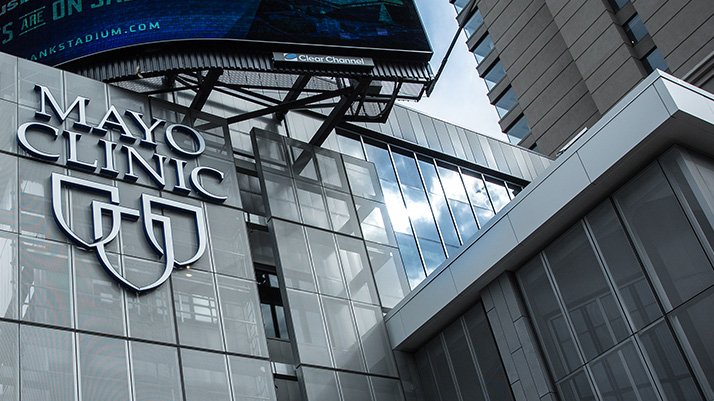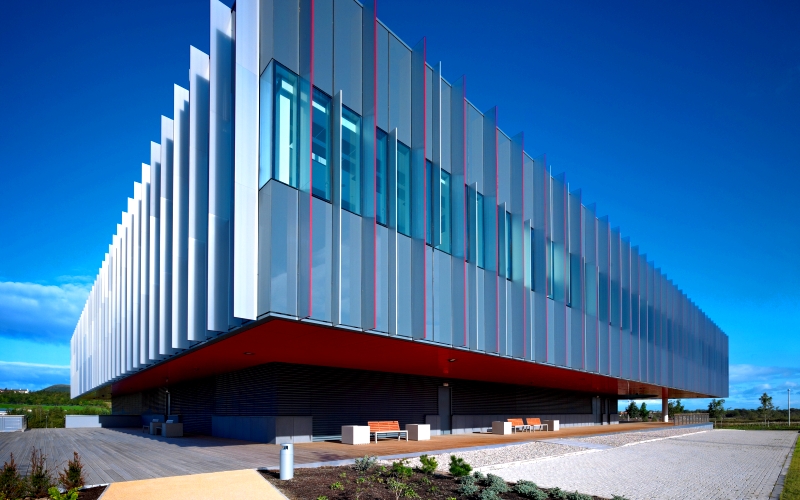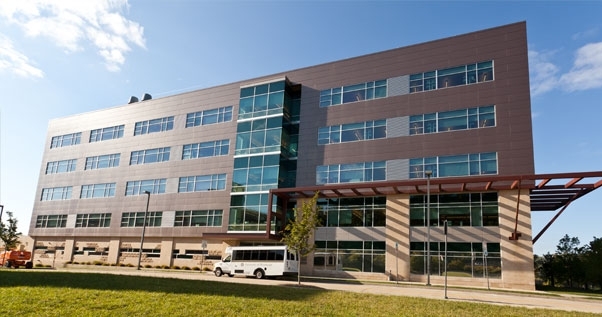Academic Research Institutes
& Stem Cell Centers

Wake Forest Institute for Regenerative Medicine
Wake Forest University School of Medicine
Richard H. Dean Biomedical Building
391 Technology Way
Winston-Salem, NC 27101
(336) 713-7293
www.wakehealth.edu
The Wake Forest Institute for Regenerative Medicine (WFIRM) is a leader in translating scientific discovery into clinical therapies. Physicians and scientists at WFIRM were the first in the world to engineer laboratory-grown organs that were successfully implanted into humans. Today, this interdisciplinary team is working to engineer more than 30 different replacement tissues and organs for virtually every part of the human body, and to develop healing cell therapies-all with the goal to cure, rather than merely treat, disease. WFIRM laboratories are currently researching ways to create insulin-producing cells, engineer blood vessels for heart bypass surgery and apply regenerative medicine technologies to battlefield injuries through co-leading an $85 million federal grant.
Established: 2004
Director: Anthony Atala, MD
Dr. Anthony Atala is considered one of the world’s leading researchers in the field of regenerative medicine. He was the director of the Laboratory for Tissue Engineering and Cellular Therapies at the Harvard Medical School affiliated Children’s Hospital in Boston when Wake Forest recruited him and his colleagues to created WFIRM. At Wake Forest, Atala developed the first lab-grown organ, a bladder, to ever be implanted in a human. He work in 3D printable organs is renowned worldwide; current work includes implanting bio scaffolding to rebuild muscle tissue in vivo.

National Center for Regenerative Medicine
Case Western Reserve University/University Hospitals Case Medical Center
2103 Cornell Road
Cleveland, OH 44106
(216) 368-2079
www.ncrm.us
The National Center for Regenerative Medicine (NCRM) builds upon leading research and clinical programs at its founding institutions, Case Western Reserve University (CWRU), Cleveland Clinic (CC), University Hospitals Case Medical Center (UHCMC), Athersys, and The Ohio State University (OSU)—in heart disease, cancer, genetic disorders, and neurodegenerative diseases—coupled with a 35-year history of research on non-embryonic stem cells at these institutions. Its mission is to utilize adult and pluripotent human stem cells and tissue engineering technology to treat human disease, and to translate this cutting edge laboratory research into clinical and commercial arenas, to replace and repair diseased tissues and organs.
Established: 2003
Director: Dr. Stanton L. Gerson MD
In 1980, the first stem cell transplant in Ohio was performed at UHCMC. In 1986, Drs. Anold Caplan and Stephen Haynesworth at CWRU filed the first patents describing mesenchymal stem cells. In 2003, the National Heart, Lung and Blood Institute and the National Cancer Institute (NHLBI/NCI) recognized UHCMC as one of 15 Stem Cell Transplantation Center of Excellences. Recent research has focused on directing the development of pluripotent stem cells.

Mayo Clinic’s Center For Regenerative Medicine
Mayo Clinic
Center for Regenerative Medicine
200 First St. SW
Rochester, MN 55905
(507) 284-2511
www.mayo.edu
Mayo Clinic believes that regenerative medicine will be a vital component of the medical and surgical practice in the coming years. By harnessing the potential of regenerative medicine, Mayo Clinic is poised to create new models of health care to transform medicine and surgery. A unique aspect of the Center for Regenerative Medicine is that its activities are not just laboratory based or clinic based, they’re both! Efforts in each of the center’s programs, which build on Mayo’s extensive research resources and clinical practice, span the full spectrum of discovery science, translational research and clinical application. In addition to developing regenerative medicine therapies for patients, the center is also committed to training the next generation of clinicians and scientists, offering continuing education opportunities to Mayo Clinic faculty and staff and educating patients and the public about the promise of and latest advances in regenerative medicine. Ultimately, this comprehensive approach means that the Center for Regenerative Medicine has the ability to turn promising laboratory discoveries into proven treatments — and make them available to patients — more effectively and efficiently than most anywhere else.
Established: 2011
Director: Andre Terzic, M.D., Ph.D.
Andre Terzic, M.D., Ph.D., has pioneered regenerative medicine at Mayo Clinic. His works include team-science efforts in the discovery of genes for dilated cardiomyopathy and atrial fibrillation. He led efforts in the development of next-generation regenerative solutions, including first-in-class products for heart repair. He has authored more than 450 publications, advancing diagnostic and therapeutic strategies for heart failure. His works include team-science efforts in the discovery of genes for dilated cardiomyopathy and atrial fibrillation and his scientific manuscripts have been cited more than 10,000 times.

Institute for Integrated Cell-Material Sciences
Institute for Integrated Cell-Material Sciences
Kyoto University Institute for Advanced Study
4th floor, iCeMS Main Bldg
Yoshida Ushinomiya-cho, Sakyo-ku, Kyoto 606-8501, Japan
+81-(0)75-753-9755
www.icems.kyoto-u.ac.jp/en
iCeMS was founded by Professor Norio Nakatsuji and focuses on advancing cross-disciplinary research and technological innovation based on cell biology, chemistry and physics. Their international team of 19 principal investigators and 160 researchers are creating a unique new research field: integrated cell-material science. Research arenas encompass coordination chemistry, polymer science, bio nanotechnology, chemical biology, stem and germ cell biology, neural stem cell biology, developmental neurobiology, biological physics, interface science and active bio-matter, and membrane biology. Cognitive rejuvenation, heart regeneration, ‘wearable organs’ and a replacement for fossil fuels are just a few of their goals.
Established: 2007
Director: Susumu Kitagawa
Susumu Kitagawa is a Japanese chemist working in the field of coordination chemistry, with specific focus on the chemistry of organic–inorganic hybrid compounds, as well as chemical and physical properties of porous coordination polymers and metal-organic frameworks in particular. He is currently Distinguished Professor at Kyoto University, in the Institute for Integrated Cell–Material Sciences, of which he is co-founder and current director since 2013.

MRC Centre for Regenerative Medicine
University of Edinburgh
5 Little France Dr.
Edinburgh EH16 4UU, United Kingdom
+44 131 651 9500
www.crm.ed.ac.uk
The Medical Research Council (MRC) Centre for Regenerative Medicine (CRM) is a world leading research center based at the University of Edinburgh. The center was formed as a cross-college initiative between the University’s School of Biological Sciences and the College for Medicine and Veterinary Medicine, for the purpose of studying stem cells, disease and tissue repair to advance human health. The center grew from what was the first Institute of Stem Cell Research in the UK, and continues the University’s strong history in stem cell research, dating back to the first stem cell publications in the early 1990s by researchers at the Centre for Genome Research. With its new state-of-the-art facilities and team of scientists and clinicians, CRM feels it is positioned uniquely to translate scientific knowledge to industry and the clinic.
Established: 2008
Director: Professor Charles ffrench-Constan
Under the direction of lead researcher Prof. Clare Blackburn, the center recently succeeded in growing a fully functional thymus gland in a mouse by inserting reprogrammed fibroblasts from a mouse embryo. This is believed to be the first time scientists has grown a complex, functional organ from scratch in a living animal by transplanting cells that were originally created in a laboratory.

McGowan Institute for Regenerative Medicine
University of Pittsburgh
450 Technology Drive, Suite 300
Pittsburgh, PA 15219
www.mirm.pitt.edu
The University of Pittsburgh School of Medicine and University of Pittsburgh Medical Center established the McGowan Institute for Regenerative Medicine to realize the vast potential of tissue engineering and other techniques aimed at repairing damaged or diseased tissues and organs. The McGowan Institute serves as a single base of operations for the university’s leading scientists and clinical faculty working in the areas of tissue engineering, cellular therapies, and artificial and biohybrid organ devices. The Institute’s mission includes the development of innovative clinical protocols as well as the pursuit of rapid commercial transfer of its technologies related to regenerative medicine. Also critical to the mission is the education and training of the next generation of scientists, clinicians and engineers. The Institute takes its name from the McGowan Center for Artificial Organ Development, which has been incorporated into the McGowan Institute.
Established: 2001 (McGowan Center for Artificial Organ Development in 1992)
Director: William R. Wagner, Ph.D.
Dr. Wagner is a professor in the Department of Surgery, with joint appointments in the Departments of Bioengineering and Chemical Engineering. He is an active researcher in the biomaterials field. The University of Pittsburgh is renowned for its research on adipose-derived stem cells, which were discovered there in the 1990s by J. William Futrell, MD, and Adam Katz, MD, who were both on the plastic surgery staff at the time. The current chair of the university’s Department of Plastic Surgery, J. Peter Ruben, MD, is known for his work on tissue reconstruction with the Armed Forces Institute for Regenerative Medicine.
